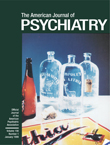Cognitive Decline in Adulthood: An 11.5-Year Follow-Up of the Baltimore Epidemiologic Catchment Area Study
Abstract
OBJECTIVE: The epidemiology of cognitive decline over 11.5 years was investigated in a large community-residing population, with a special emphasis on the relationship between education and cognitive decline. METHOD: The study was an 11.5-year follow-up of a probability sample of the adult household residents of east Baltimore. From the Baltimore cohort of the Epidemiologic Catchment Area study, 1,488 participants completed the Mini-Mental State during three study waves in 1981, 1982, and 1993–1996. For each study participant, the difference in scores on the Mini-Mental State between waves 2 and 3 was calculated. RESULTS: Over a median interval of 11.5 years, the study participants’ scores on the Mini-Mental State declined a mean of 1.41 points, and the scores of 68% of the participants declined by at least 1 Mini-Mental State point. With and without adjustment for age, greater declines were associated with having 8 years or less of formal education and with being African American. CONCLUSIONS: Over a long time period, cognitive decline occurred in all age groups. Having more than 8 years of formal education was associated with less decline. However, beyond 9 years, additional education was not associated with a further reduction in cognitive decline. This suggests that a minimal amount of education during early critical periods might confer protection against cognitive decline later in life.



